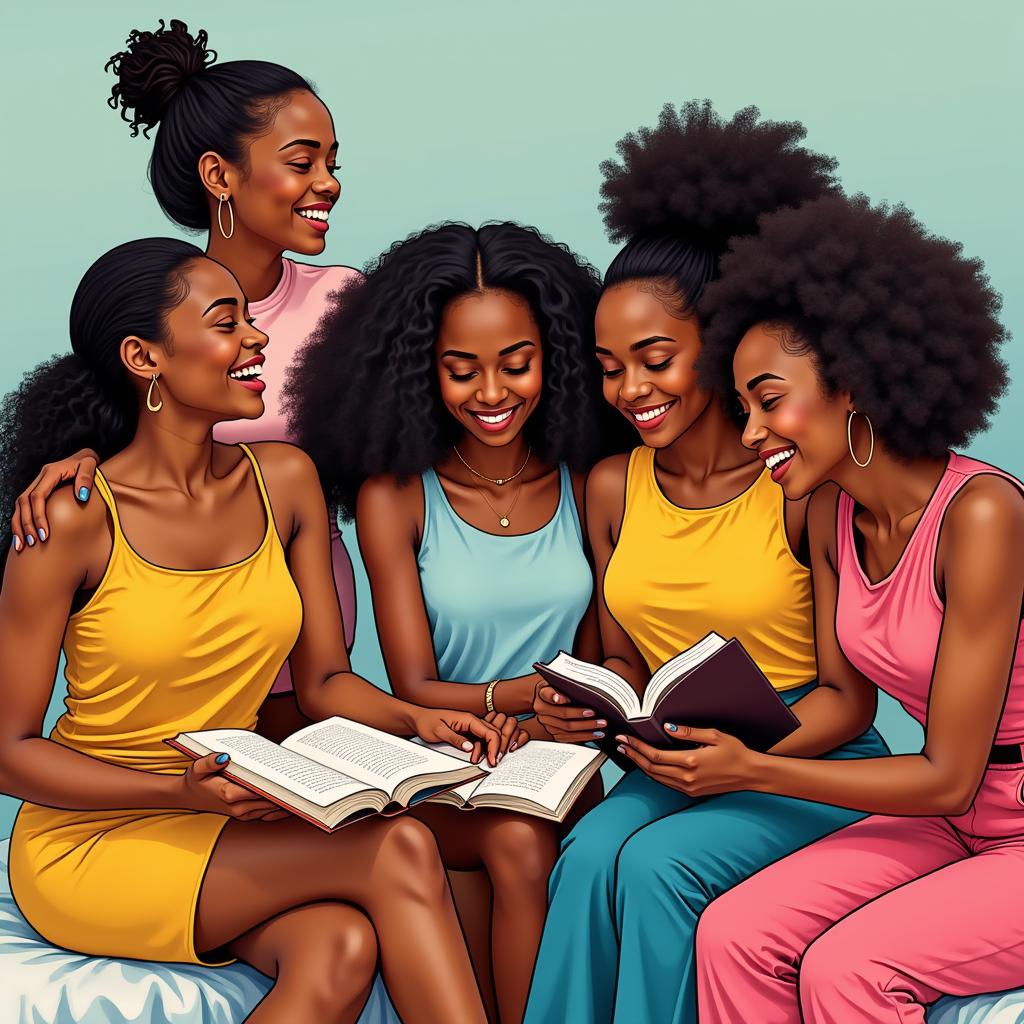African Female Writers of the First Generation: Pioneering Voices
The term “African Female Writers Of The First Generation” typically refers to women born in the early to mid-20th century who began publishing their works during the struggle for independence and its aftermath. These remarkable women used their voices to challenge colonial narratives, shed light on the complexities of African societies, and pave the way for future generations of writers.
A Literary Awakening Amidst Political Upheaval
The mid-20th century was a time of significant transformation across the African continent. As nations fought for liberation from colonial rule, a new generation of writers emerged, capturing the spirit of resistance, hope, and disillusionment that defined the era. Among them were a group of trailblazing women who dared to break the silence imposed by patriarchal traditions and colonial oppression.
These writers grappled with themes of identity, culture, gender, and politics, often drawing inspiration from their own lived experiences. They gave voice to the voiceless, challenging stereotypes and offering fresh perspectives on African realities. Their works reflected the diverse cultures and languages of the continent, enriching the global literary landscape with their unique storytelling abilities.
Notable Voices: Shaping the Literary Landscape
Among the first generation of African female writers, several names stand out for their significant contributions to literature:
-
Flora Nwapa (Nigeria): Considered the pioneer of modern African women’s literature, Nwapa’s debut novel, Efuru (1966), challenged traditional notions of womanhood and marriage in Igbo society.
-
Mariama Bâ (Senegal): Her seminal work, So Long a Letter (1979), explored the complexities of polygamy and women’s struggles in post-colonial Senegal.
-
Bessie Head (Botswana): Head’s novels, such as When Rain Clouds Gather (1968) and A Question of Power (1973), explored themes of exile, identity, and mental health.
-
Ama Ata Aidoo (Ghana): A prolific playwright and novelist, Aidoo’s works, including The Dilemma of a Ghost (1965) and Changes (1991), examined cultural clashes, gender roles, and the challenges faced by African women in both traditional and modern settings.
These writers, along with many others, laid the foundation for a vibrant and diverse literary tradition that continues to thrive today.
Legacy and Impact: Inspiring Generations
The impact of these pioneering writers extends far beyond the realm of literature. They challenged societal norms, sparked conversations, and inspired countless individuals to embrace their own voices.
 African Women Engaging with Literature
African Women Engaging with Literature
Their work has paved the way for subsequent generations of African female writers, who continue to push boundaries and explore new frontiers in literature. The themes they tackled remain relevant today, resonating with readers worldwide who connect with their universal messages of resilience, hope, and the ongoing struggle for equality.
Conclusion: A Lasting Literary Legacy
The first generation of African female writers left an indelible mark on the world of literature. Their courage, talent, and unwavering commitment to telling their stories have inspired countless readers and writers alike. As we celebrate their contributions, we are reminded of the power of literature to challenge, to enlighten, and to give voice to the voiceless. Their legacy continues to shape the literary landscape, ensuring that the stories of African women will continue to be heard for generations to come.
For more information on impactful women, you can explore resources on African American female role models.
